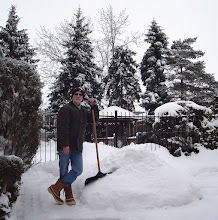However, a little investigation reveals that I’ve been using the wrong phraseology. I should have been saying “raises the question".
From a Wikipedia article on begging the question:
Begging or assuming the point at issue consists (to take the expression in its widest sense) [of] failing to demonstrate the required proposition. But there are several other ways in which this may happen; for example, if the argument has not taken syllogistic form at all, he may argue from premises which are less known or equally unknown, or he may establish the antecedent by means of its consequents; for demonstration proceeds from what is more certain and is prior. Now begging the question is none of these. [...] If, however, the relation of B to C is such that they are identical, or that they are clearly convertible, or that one applies to the other, then he is begging the point at issue.... [B]egging the question is proving what is not self-evident by means of itself...either because predicates which are identical belong to the same subject, or because the same predicate belongs to subjects which are identical.
Which raises the question, “HUH?”
Dictionary.com defines the idiom as to assume the truth of the very point raised in a question.
That may be true, but, the examples used by many to to illustrate what begging the question is are statements, such as; “He is ugly because he’s unattractive” or “Lying is wrong, because we ought always to tell the truth”. Those in the supposed know will claim that those statements beg the question. Period.
Someone from another web site had this to say on the subject:
The phrase BEG THE QUESTION dates back to Aristotle and means to make the logical mistake of assuming the very thing that is to be proved (or in Latin ‘petitio principii,’ to beg the main point, assume without proof). Since 1990, however, it has sometimes been used to mean avoiding a straight answer. And an even more recent usage is ‘to raise the question.’ Since its meaning is now ambiguous it’s probably best to avoid it altogether and if one means ‘raise the question,’ just say so.
I think we should heed the advice in the quote above and just avoid the phrase altogether. Apparently, no one can figure out what it really means. It sounds as if Aristotle or whoever, just chose an arbitrary verb to describe a grammatical action. We could easily say that a sentence like, “Snow is cold because it is frozen precipitation” shovels the postulation.
So the next time you find yourself in a conversation and someone expresses some gobbledygook like,“Circular reasoning is different from the informal logical fallacy “begging the question", as it is fallacious due to a flawed logical structure and not the individual falsity of an unstated hidden co-premise as begging the question is” just look at them with pity and exclaim in the most patronizing tone you can muster, “That shovels the postulation. In fact, it shovels more than just postulation". You’ll undoubtedly make quite an impression.
On another grammatical note, one morning earlier this month, I was on the web site Dictionary.com where I saw the word of the day was keif — meaning drowsiness or dreamlike intoxication.
However, the pronunciation guide on the site had spelled it phonetically as keyf. Now I had correctly assumed it was pronounced to rhyme with leaf, or beef, or Donovan's Reef. But ey could sound like a long a, as in whey, or hey, or Susan Dey.
For some reason, I needed to know right away at 7AM how this word was pronounced. So I powered on my computer speakers and turned the thumbwheel down to adjust the volume to its lowest setting. At least I thought I had turned it that way. Apparently I had cranked the volume to the max. I leaned in close to place my delicate ear next to the speaker. I clicked on the sound symbol to hear the pronunciation from the demure female voice of Dictionary.com. An ear-splitting stentor blasted at me,
“KEEF”
I was expecting my wife to storm into the room and whack me over the head with the keyboard. Actually, she’s very sweet. She just calmly walked over to where I was sitting and disconnected the speakers from the computer. She then grabbed the car keys, proceeded outside to the driveway, and ran over the speakers with our SUV. Not that it mattered much. I think they were pretty well blown at that point. My ears, that is.
Now I can "listen" to today's "music" in ignorant bliss. Which shovels the postulation... well, never mind.



No comments:
Post a Comment